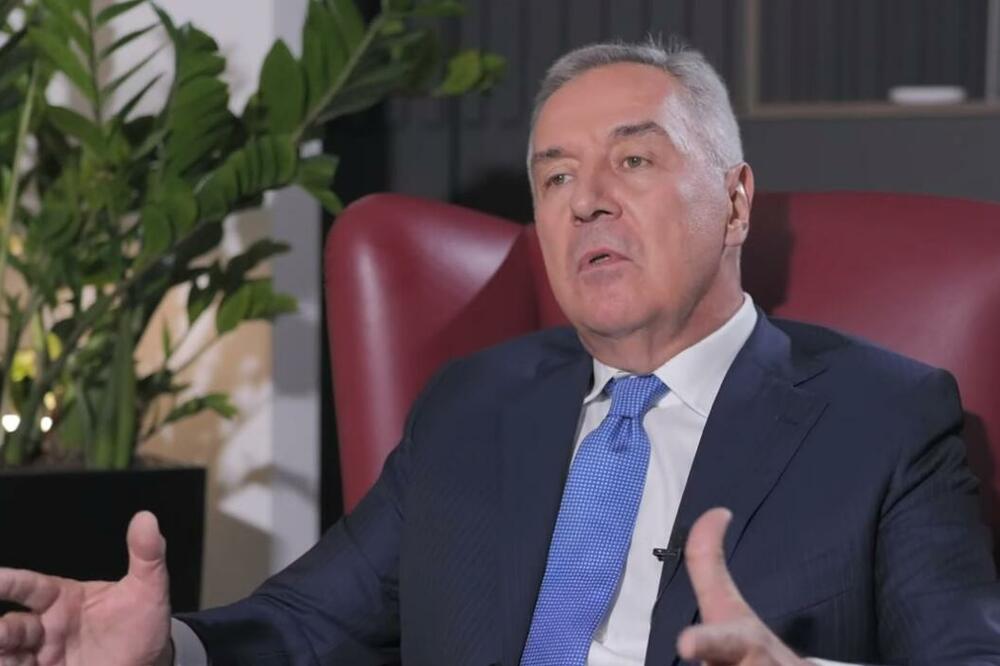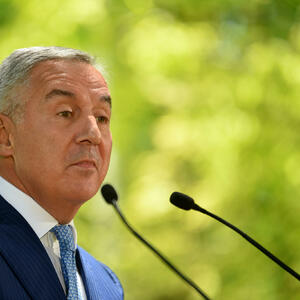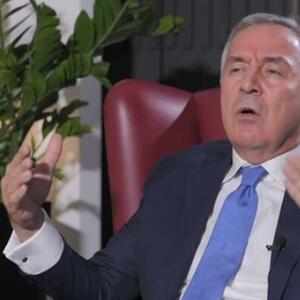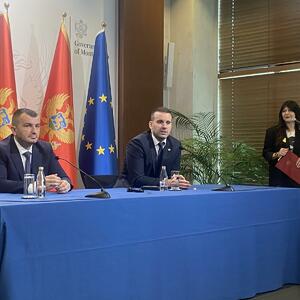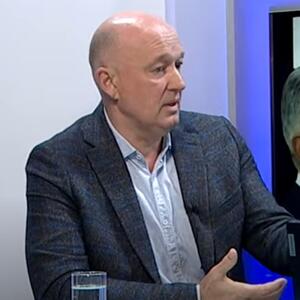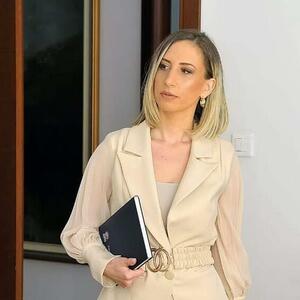It would be wrong to expect that some "saving therapy" would come from the West that would cure the political cancer that is currently burdening Montenegro.
This was stated by the former president of the state, government and the Democratic Party of Socialists (DPS) Milo Đukanović in an interview with Antena M.
"The Western partners see very well what is happening here, but they do not pay the necessary attention to it. I understand, they have much more important priorities than Montenegro and the Western Balkans, but that does not excuse them for the wrong policies they initiate or support when in terms of the European perspective of our region," Đukanović assessed.
He added that "he is trying to overlook the fact that the coquettishness of some authoritative Western political addresses with regional nationalist policies has released the genie from the bottle in the societies of the Western Balkans", i.e. "that today the Western Balkans is dealing with the same topics that it was dealing with in the 90s, the protection of supposedly endangered members of certain nations outside the borders of the home state, thereby destroying the sovereignty of neighboring states, spoiling good neighborly relations and essentially endangering the stability, and thus the European perspective of the region" .
Commenting on the "Open Balkans" initiative, Đukanović evaluated it as "an overture for the creation of a great Serbia and its counterbalance - Albania within natural limits."
"For me, the Open Balkans is an attempt to institutionalize the dominance of Serbia and Albania in the Western Balkans. And every attempt to dominate any country in the Western Balkans, history reminds us, has always led to war. When the nationalist spirit comes out of the bottle, there is no authority, neither domestic nor international, which can prevent the escalation of nationalism, the renewal of instability and even war conflicts," said the former head of state and government.
According to his opinion, the USA ie. The State Department "by selfishly absolutizing its interests ignores the major political damage it is doing in the region" and adds that it thinks "they have become so widespread that it is now difficult to repair them painlessly".
Answering the question whether it is actually an experiment behind which are the chairman of the board of directors of the "For an open society" foundation, Alexander Soros, and the son-in-law of the former president of the United States of America (USA) Donald Trump, Jared Kushner, who has a business in Serbia, Đukanović said that possible, but also that it is possible that it is about other interests.
"It is legitimate for America to expose its two very important political interests in this region. And that is to separate Serbia from Russia and secondly to prevent the political and diplomatic destruction of Serbia when it comes to the international recognition of Kosovo. It is the usual right of a great power to use its political to assume the interests of other countries and regions and therefore deliberately turns a blind eye to today's official Belgrade's rhetoric, which in no way deviates from the narrative and practice of Serbia from the early 90s "Herzegovina is still trying to protect the allegedly threatened rights of Serbs in Montenegro and in other countries of the region. We know how it ended the first time and we know how it can only end the second time and every time after that," he pointed out.
Đukanović also said that he noticed "the great playfulness of Soros' successor in the Western Balkans" with the ambition to explain to us what is good for us and to impose his "saving discovery" Open Balkans on us, but that he did not succeed even though he tried to do it "with his two closest supporters" - Serbian President Aleksandar Vučić and Albanian Prime Minister Edi Ram.
"Although he tried to do it with Vučić and Ram, who for that purpose also recruited our unfortunate (Dritan) Abazović, who was an absolutely immature player and not committed to Montenegrin interests, and who hoped that by serving the game of these, for him, authoritative regional and international players, to strengthen his missing authority and extend the life of his career. Today, Montenegro has sobered up somewhat politically thanks to the lessons we learned during the previous four years, and I think that the idea of the Open Balkans has become a thing of the past," he stated. is Đukanović.
Answering the question whether "part of what happened in the last couple of years in Montenegro" can be explained by "some kind of personal antipathy that is drawn towards him by a circle of people who were once close to Madeleine Albright (former US Secretary of State)", i.e. that "the root and they hate his refusal to fulfill the demands from the era of confrontation with the former president of the Federal Republic of Yugoslavia Slobodan Milošević" Đukanović replied that he did not believe that this was the case.
He said that during that period there were disagreements between Montenegro and the authorities in Washington.
"Albright asked me not to introduce the stamp into the payment system of Montenegro. She also included some other people such as the foreign ministers of Italy and Germany, Albert Dini and Joška FIšer. Despite everything, I remained convinced that Montenegro cannot suffer any more a hyperinflationary coup from Belgrade. Our second disagreement was about me being the leader of the opposition in the 2000 elections," Đukanović pointed out and added that he refused and said that he could not accept it because "he did not believe in that country ", and that therefore he did not want to "maintain the illusion that it is sustainable, and he does not believe in it".
According to him, the disagreement also related to the fact that "the USA and the European Union (EU) did not support the idea of the independence of Montenegro".
"There were warnings that this could restore instability, that Serbia suffered a lot during the bombing in 1999 and that it was on the way to losing Kosovo," said Đukanović.
He pointed out that his findings speak of "very influential lobbying of Serbia in the West, especially in the USA", and that this coincides with the period when "Montenegro" does not have any lobbying partner in that country.
Đukanović assessed the political scene as "horribly miserable" because "people who are unable to present themselves with any other result, think that the lowest human urges should be fed by chasing people without grounds and institutional rights", and that in this way "undermines the authority of the legislature".
"We live in a poisoned atmosphere, which says that the massacre in Montenegro will continue. The Montenegrin society is a society of avengers", he said and added that in Katunska Nahija, in some families, "Blood revenge has been going on for more than 200 years".
According to his words, "he who rejoices over the handcuffs on other people's hands, will not recognize his handcuffs tomorrow".
Đukanović said about the arrests of Milivoje Katnić, Veselin Vukotić, Đok Rajković... that it was about humiliating those people, and that they could have been invited to come forward themselves.
Bonus video:



